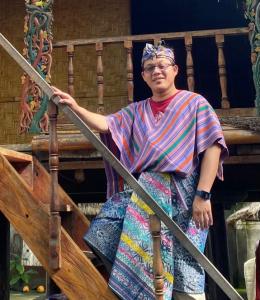
Dr Muhamad Rofiq Muzakkir
IASH-Alwaleed Postdoctoral Fellow, December 2023 - September 2024
Home Institution: Universitas Muhammadiyah Yogyakarta
I am a lecturer from the Department of International Relations, Universitas Muhammadiyah Yogyakarta, Indonesia. I pursued undergraduate study in Islamic Law at al–Azhar University of Egypt. I completed a master's degree in the Department of Middle Eastern Studies at Gadjah Mada University, Indonesia. I obtained my doctoral studies in the Department of Religious Studies at Arizona State University in 2022. My dissertation is entitled Tradition and Modernity in the Ulama's Discourse on Usurpation of Power. In this dissertation, I examine discursive strategy and shift in the Muslim scholars’ discourse: how they construct their discourses within the paradigms of the existing Islamic legal and ethical schools and how Western political philosophies, particularly constitutionalism and legitimacy, may have shaped their ideas.
I have an interest in various topics: political thought, legal thought, and anthropology.
Project title: The Impact of Modernity and Colonialism on Islamic Ethics and Legal Thought.
Colonialism has traditionally been associated with the annexation of territory and foreign control of local political power. The effects of colonialism on the colonized people's legal system, particularly alterations to their conventional epistemic notions and institutions, are still understudied. Additionally, modernity is frequently valorized as a historical epoch that transformpeople’s lifestyles. Scholars have not paid much attention to its destructive effects on the law, such as the dissolution of traditional ideas and institutions and the rise of new ethical subjectivity.
My first project will compare the thoughts of Khaled Abou El Fadl and Wael Hallaq, two of the most eminent Western scholars working in the field of Islamic legal scholarship, regarding the interplay of colonialism, modernity, and legal reform in colonized societies. In particular, mystudy will examine how the two scholars perceive the entanglement of modernization and reformation of law in Muslim countries with the project of colonization. My second project analyzes how Abdullah Bin Bayyah, a muftī of the United Arab Emirate and the President of the Forum for Promoting Peace in Muslim Societies, invokes and engages with Islamic legaltradition particularly on the idea of unjust ruler. In this study, I look at how his invocation or negligence of such tradition informs us about rupture and continuity of tradition in memory of modern Muslim scholars.
